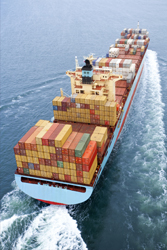Trade-specific sea vessels for better cargo transport
The 'Production to improve total efficiency of new generation short sea shipping' (Create3S) project was set up to develop a new generation of European short sea shipping (SSS) vessels by developing advanced concepts and techniques for their design, manufacture and operation. The underlying goal was to reduce costs, streamline operations and enhance shipbuilding innovation. A key objective was to separate hydrodynamic- and cargo-carrying platforms on vessels, to be approached through a new modular concept applicable to dry bulk transport, liquid cargo and intermodal load units. Several module alternatives were considered with a view to optimisation for industrial mass production. Project partners adopted an end-user–driven, problem-solving approach to guide the development of a modular short sea ship concept, a logistic concept and an advanced manufacturing concept. The development of new ship proposals started with a look at cargo movement requirements for logistic operation, as well as required capabilities for handling cargo in port and carrying cargo at sea. For both, the technical, operational and economic parameters were identified and quantified to ensure safe and clean vessels of transport that were also competitive. After outlining ship operator requirements and considering them in relation to the modular concept being advanced, consortium members developed four alternatives, each of which had a dedicated cargo concept. Evaluation of their logistic merits guided the choice of modular ship, which in turn served as a basis for further R&D. The chosen dock ship concept featured standard cargo barges holding containers, which were loaded or unloaded by ballasting the dock ship. Three dock ship classes were examined, and the larger one selected for preparation of a detailed design integrating more advanced hydrodynamic and structural developments. Comprehensive structural calculations and model tests for examining resistance, sea-keeping properties and safety were all part of the advanced design stage. The project’s overall success and innovative approach promises to boost the competitiveness of European SSS as a vital mode of transport. It will also drive Europe’s standing as a leading provider of safe, economically efficient and advanced short sea ships.

